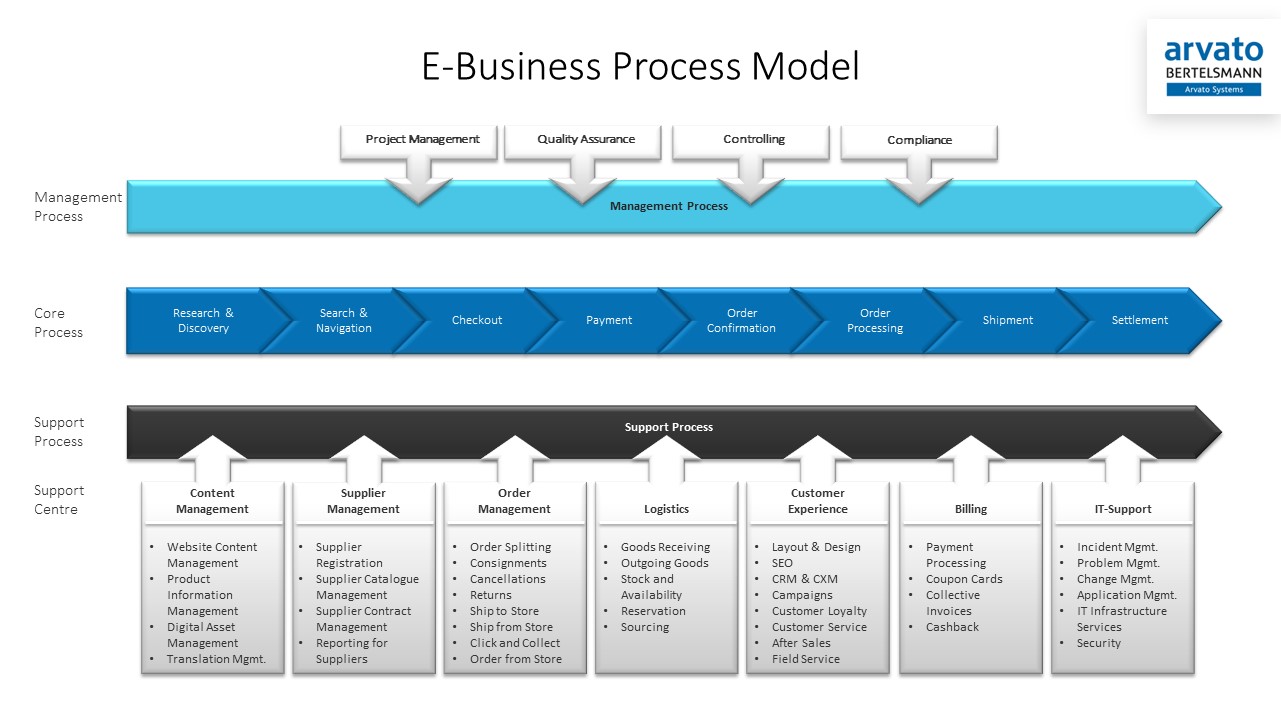
Complement Your E-Commerce with E-Business
Keeping track of all digital marketplaces
Today, customers effortlessly combine online and brick-and-mortar commerce. They strive for a consistent shopping experience across all touchpoints and expect digital and physical services to be seamlessly connected. In addition, customer behaviors can change unpredictably. All this requires maximum efficiency and flexibility of processes in almost all areas of retail companies.
But before we go into the complexity of modern E-Business and how to master it, we would like to explain the difference between E-Business and E-Commerce.
What is "E-Business"?
E-Business is a term used to describe the use of information technology (IT) to support business processes. E-Business solutions enable companies to simplify and make their business processes more efficient. Both internal and external processes can be covered. Commonly used E-Business solutions include electronic databases, E-Commerce platforms, and Enterprise Resource Planning (ERP) systems.
E-Business is more than just selling and buying products and services online. It uses the Internet's power to support other business activities, such as customer service, production control, partner collaboration, and payment processing. The term E-Business even includes the operation of a physical store online and offline. E-Business thus covers all processes supported by digital technologies and can be automated. The core components of E-Business include communication, interaction, and transaction.
Keep Track of All Your E-Business Processes
The E-Business Process Model helps companies build or re-engineer an E-Business organization by helping deal with the complexities of the order-to-cash process. It helps sort out the multifaceted elements and maintain an overview by distinguishing between the value-added core process, the support centers, and the overarching management process.
The classification and grouping of processes indicate how, for example, responsibilities and competencies can be organized in team structures in modern E-Business. When selecting the exemplary system architecture and software, the model makes it easier to collect and represent the requirements from the different areas. The process model provides an overall view, conveys the "big picture" of E-Business, and thus helps introduce the complex topic in one's own organization. It can also be used to check the completeness of requirements, for example, in requirements specifications or tenders. Only those who have an overview of all needs and understand how they interact can make informed decisions and thus select the best partners, tools, and architectures.
The graphic below provides an overview of the versatile e-commerce processes. The central value-adding e-commerce business process is shown with the numerous accompanying support processes and the controlling management process.

Why You Should Get an Overview of Your E-Business
A good overview of your E-Business is critical to ensure your company is successful. By controlling all channels, you can identify and solve problems faster. You can also plan your marketing activities and achieve your goals more quickly. The more processes and (digital) marketplaces are added to the company, the more complex the situation becomes. With increasing digital transformation, (E-Business) processes and marketplaces in the company are becoming increasingly difficult. This represents a significant challenge for corporate management. Companies must constantly optimize and adapt their strategies and marketplaces to succeed. Our E-Business Process Model helps you tocomplex do this.
Written by





